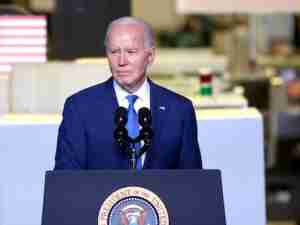"They subsidise nearly everything," Trade Commissioner Karel De Gucht told Reuters in an interview.
"We are going to become much more precise in reacting to that kind of practice. We are focusing more and more on subsidiation (subsidies), because it works horizontally in all sectors," he added.
The 27-nation EU has used anti-dumping procedures to ward off cheap Chinese imports that have led to a 133 billion euro ($182.7 billion) trade deficit with China. The bloc can also challenge Chinese subsidies by increasing import tariffs.
Exports from China are expected to increase even more when the EU formally recognises China as a market economy, expected to happen in 2016 at the latest.
European industrial giants from steel, construction and electronics sectors have called for years for the EU to go further in challenging Chinese subsidies they say are illegal and should trigger EU trade barriers.
De Gucht said the EU would also demand Chinese assurances it would meet EU needs for rare earth -- used in high-tech and defense products -- while Europe finds other sources of supply, though it has no grounds yet for legal action against Beijing.
China accounts for 97 percent of rare earths production. Its moves to restrict exports have alarmed industry and governments worldwide and triggered a rush for alternative deposits.
Senior EU officials will press Chinese counterparts for an agreement on medium-term supplies during a meeting in December.
"If need be, we will certainly go to the WTO (World Trade Organization) but ... up to now there is no conclusive evidence that our European businesses are hampered by this," the 56-old lawyer and former Belgian foreign minister said.
"It's better to come to a negotiated agreement whereby the interim is covered by clear arrangements ... instead of getting into a fight."
De Gucht said the EU might consider scrapping preferential trade tariffs for countries such as China and Russia if they limit certain important exports.
De Gucht's office will unveil reform plans for the EU's so-called Generalised System of Preferences, of which China and Russia are beneficiaries, early next year.
"I think you could expect from a country (to) whom you are granting a substantial advantage that they do not make your life hard if it is not necessary," he said.
China has defended its export restrictions, citing protection of a diminishing resource and the environment -- issues expected to be discussed at this week's G20 summit.
Doha Trade Accord
Some G20 leaders are also likely to use their meeting this week in South Korea to press the United States to agree to restart talks on the Doha global trade accord at the WTO, De Gucht said.
Efforts to revive the negotiations, which have been stalled since 2008, have failed partly because of U.S. doubts about how much the country will gain from a deal.
"We should the utmost to convince our American friends that they have an interest in this deal and that the assumptions they are making on Doha are not correct," De Gucht said.
"Green" Bordor Tax
But he rejected calls for an EU import tax on goods made under less stringent environmental conditions than in the EU, saying that would pose the risk of multiple lawsuits.
France and Germany have said a "green" border tax is critical for securing the competitiveness of EU producers burdened by environmental rules that add to their costs.
The U.S. Congress has debated such a tax and the issue is likely to come up at a summit of EU and U.S. leaders next week.
"I fear very much that (a border tax) could end up in a trade war. I'm certainly not in favour of this," De Gucht said.
The EU's executive Commission has no plans to draft such a tariff, but may reconsider if other major trading or economic blocs took such a step, he








